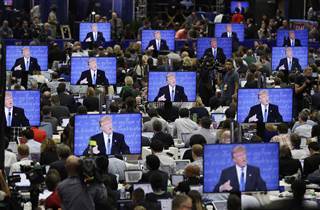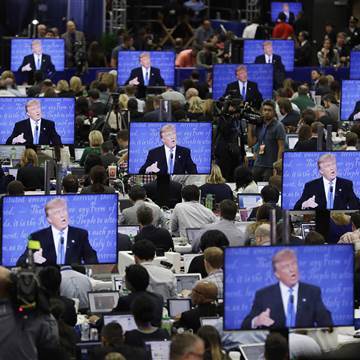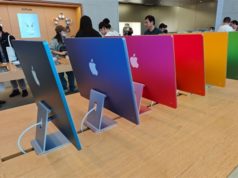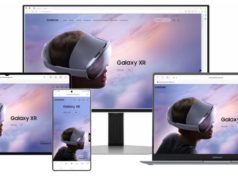We’re not saying the next president needs to be tech savvy enough to build an app, but he or she will need to at least have some tech chops.
Privacy, hacking, visas for highly skilled foreign workers, net neutrality, and the growing gig economy are some of the most pressing tech-related issues that have been addressed this election cycle — even though the topics have largely gone unaddressed in the three presidential debates.


Nevertheless, they’re issues so important that Hillary Clinton’s campaign put two tech titans — Bill Gates and Tim Cook — on her initial list of 39 possible vice presidential picks, according to a WikiLeaks email dump.
Related: Where Hillary Clinton, Donald Trump Stand on Tech Issues
Techies across the U.S. agree the next president is going to have to be ready to listen and work with the tech community.
“It’s super important,” Leif Abraham, CEO of AND CO, a freelancing software platform, told NBC News. “What the private sector is really good at is moving fast. The private sector potentially has a better grip to solve some of these issues before the legislature catches up.”
The sometimes tense and complicated relationship between Silicon Valley and the government was thrust into the spotlight in February when Cook, CEO of Apple, refused to help authorities find a way to unlock the iPhone used by one of the San Bernadino shooters.
Cook said in a letter that what the FBI was essentially demanding was for Apple to build a new operating system that could be installed on an iPhone. No such thing exists, but Cook said if it did, there would be no way to guarantee it would only be used for investigations, potentially jeopardizing the privacy of millions of Americans.
At the time, Trump called for a boycott of Apple until the iPhone maker cooperated with authorities. (Apple didn’t and the FBI said they found a way with outside help.)
Clinton took a measured approach. She referred to the issue as a “dilemma,” and said there “has to be some way to avoid breaking data encryption and opening the door to a lot of bad actors.”
While Clinton has promised to partner with the tech community, Trump has shared strong opinions on how the tech sector should be operate.
He’s called for Apple “and all of these great companies” to make their products in the United States.
“Trump would like to force them to do it, and I don’t believe you can do this by force. You should try to economically incentivize it,” Ivan Feinseth, chief investment officer at Tigress Financial Partners, told NBC News.
Trump’s campaign also seethed when the U.S. handed over control of the internet’s naming system earlier this month, issuing a statement alleging the move would jeopardize internet freedom.
“The U.S. created, developed and expanded the internet across the globe. U.S. oversight has kept the internet free and open without government censorship — a fundamental American value rooted in our Constitution’s Free Speech clause,” the Trump campaign said.
Related: Last Minute Drama As U.S. Prepares to Hand Over Control of Internet Naming System
Trump doesn’t go into much detail on his website regarding tech issues, but Clinton has an “Initiative on Technology & Innovation” where she’s outlined plans such as one make it easier for advanced international STEM students in the United States to obtain green cards after graduating from certain schools.
Aaron Skonnard, CEO of Pluralsight, an on-demand tech learning platform, said the tech skills gap is an important issue to him as a voter. He cited the government’s TechHire initiative, launched in 2015, which aims to foster future tech talent in communities around the United States, ensuring there is a pipeline of qualified Americans ready to lead in new tech jobs. The program has doubled since its launch and is now in more than 50 communities, according to the White House.
Ultimately, “the longer we let the skills gap in tech persist, the further we’re going to fall behind in the world economy,” Skonnard told NBC News.
According to the Global Innovation Index released in August, the United States ranks fourth, falling behind Switzerland, Sweden and the United Kingdom.
While Silicon Valley is overwhelmingly Clinton territory, the election has already divided people in the tech community another way.
Earlier this week, Donald Trump’s most high profile tech supporter, PayPal billionaire Peter Thiel, donated $1.25 million to the Trump campaign and various PACs, prompting some people to call for him to be fired from his position as a partner at start-up incubator Y Combinator.
Many people who have worked with Thiel and consider him a friend jumped to his defense and pointed out it would be “very dangerous” to disassociate with someone just for having different political views.
“The way we got into a situation with Trump as a major party nominee in the first place was by not talking to people who are very different than we are,” Sam Altman, Y Combinator president wrote in a blog post. “The polarization of the country into two parallel political realities is not good for any of us. We should talk to each other more, not less.”





![[Infographic] Manage Commercial Displays With Ease Across](https://loginby.com/itnews/wp-content/uploads/2026/02/1770220527_Infographic-Manage-Commercial-Displays-With-Ease-Across-100x75.jpg)
